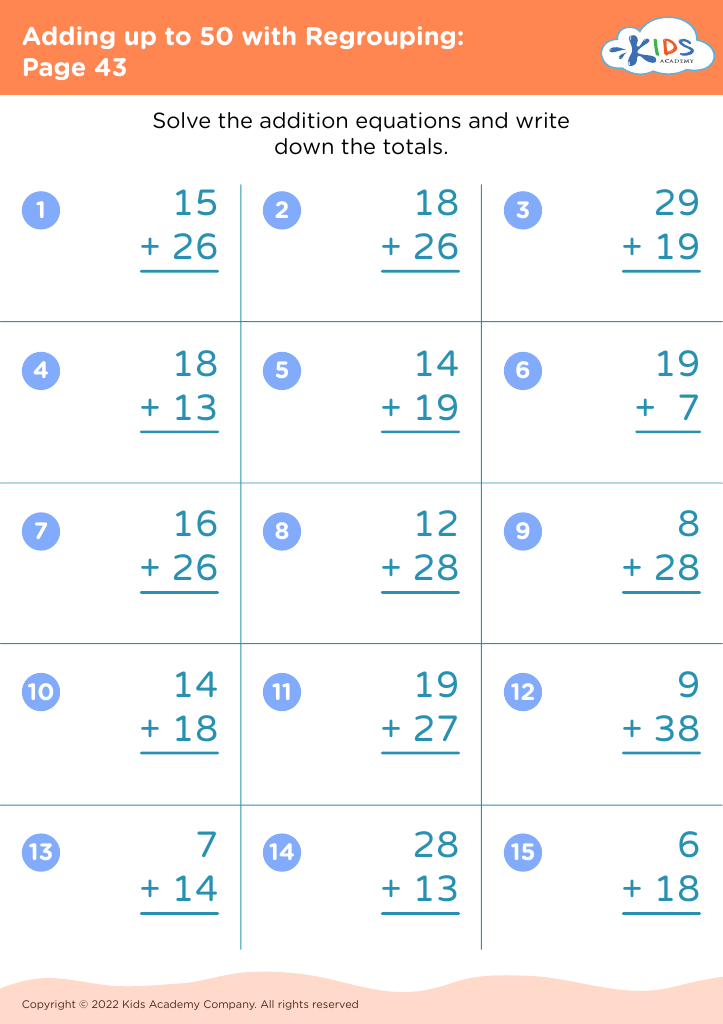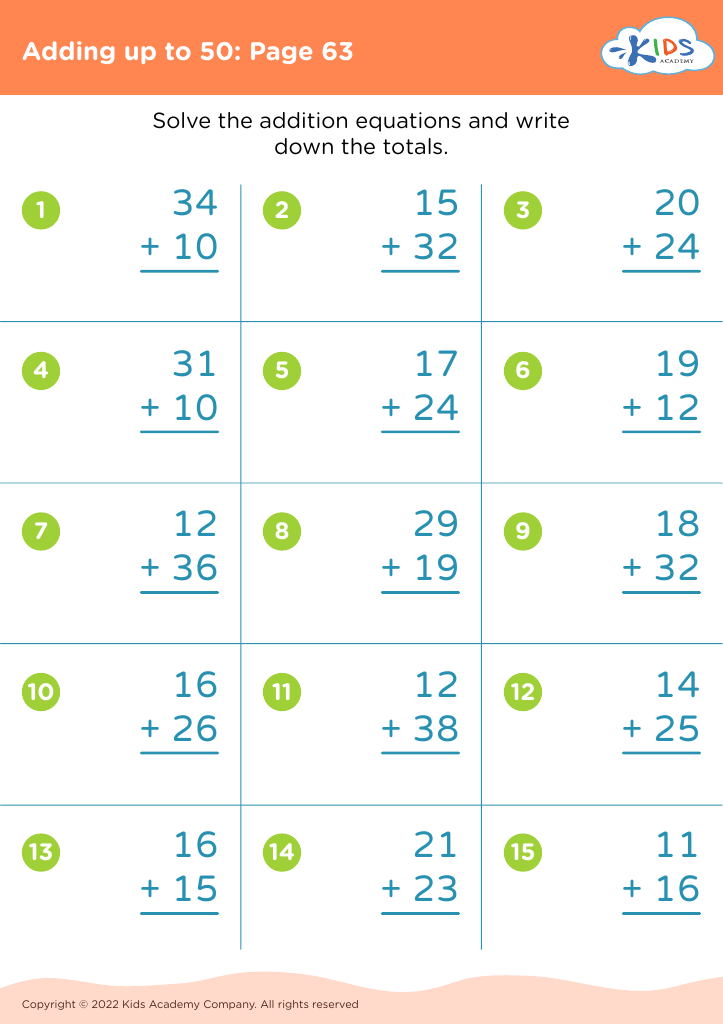Subtraction practice Adding up to 50 Worksheets for Ages 5-7
3 filtered results
-
From - To
Our "Subtraction Practice Adding up to 50 Worksheets for Ages 5-7" offer engaging, educational activities to help young learners master subtraction concepts up to 50 with ease. Designed to be fun and interactive, these worksheets enhance children's number recognition, counting skills, and problem-solving abilities. Featuring colorful illustrations and varied exercises, each worksheet is crafted to maintain children’s interest while teaching them the foundational math skills necessary for success. Ideal for classroom use or homeschooling, this collection ensures that children develop a strong mathematical foundation through practice and repetition, all within an enjoyable learning experience.
Subtraction practice, especially within the range of adding up to 50, is crucial for children aged 5-7 because it lays a fundamental groundwork for their future mathematical understanding. At this developmental stage, kids are beginning to grasp the concept of numbers and basic arithmetic operations. Practicing subtraction helps refine their number sense, teaching them how to shift from a concrete understanding to more abstract thinking.
One significant reason parents and teachers should care about this practice is that it enhances problem-solving skills. When children learn to subtract, they engage in logical reasoning and develop their ability to approach various mathematical challenges creatively. It’s not just about getting the right answer but understanding the process, fostering critical thinking that is beneficial throughout their academic journey and daily life.
Furthermore, fluency in subtraction builds confidence. Mastery of simple subtraction problems empowers kids, making them more eager and open to tackling more complex math topics later. It also aligns with educational standards which often aim to ensure full competency in basic arithmetic by the end of early grades.
Lastly, consistent subtraction practice supports better focus and increased memory retention. So, ensuring children get ample practice with subtraction within this range (adding up to 50) equips them with a solid foundation upon which more advanced mathematical concepts can be built effectively.



















